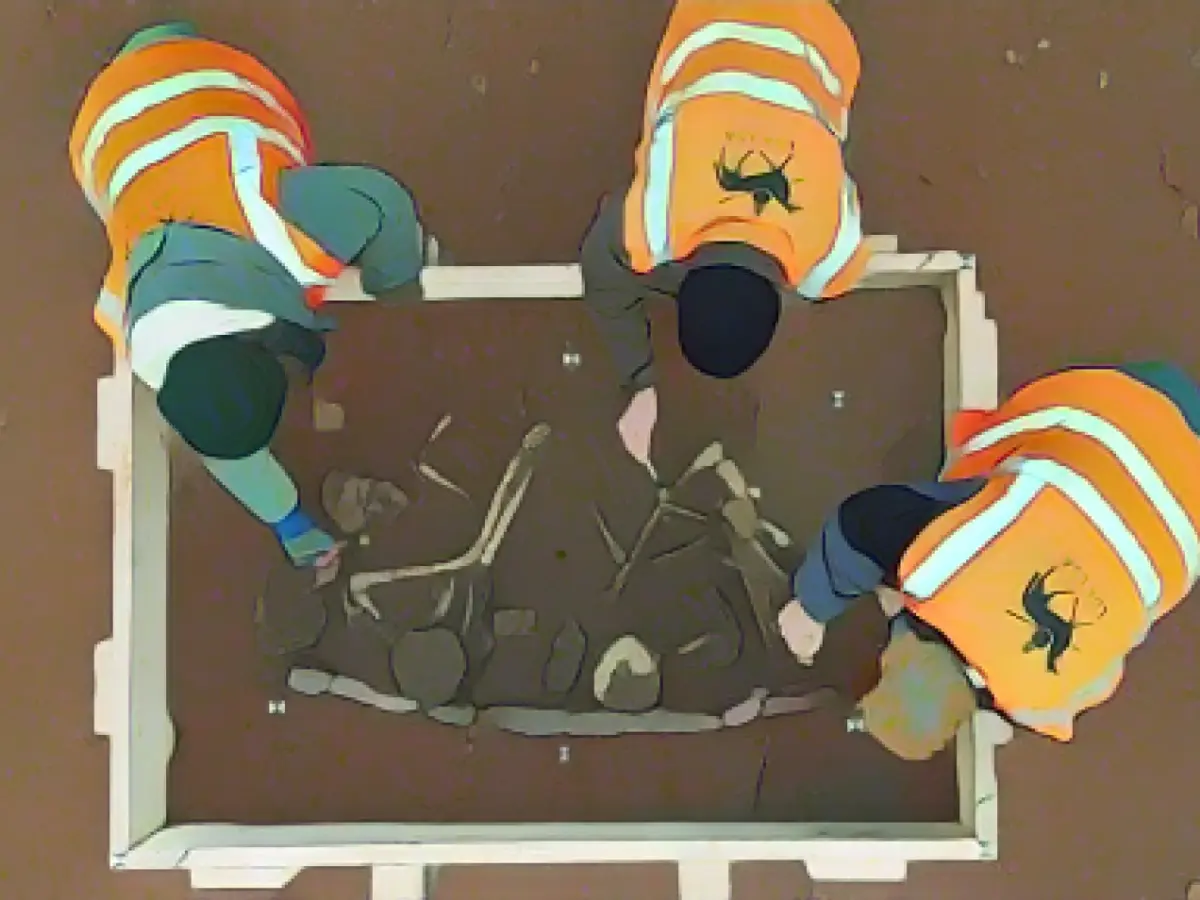Development - Significantly fewer archaeological excavations in Saxony-Anhalt
The number of archaeological excavations in Saxony-Anhalt fell significantly in 2023. There were 450 archaeological investigations across the state, 100 fewer than in the previous year, as the Saxony-Anhalt State Office for the Preservation of Monuments and Archaeology announced in response to an inquiry. "The main reason is the significant decline in single-family house construction," says state archaeologist Harald Meller. "Excavations were increasingly carried out in the run-up to the construction of logistics halls and solar power plants."
Excavations have also been carried out on the future site of the US chip manufacturer Intel in Magdeburg. For the archaeologists digging here in the run-up to the new building, the site has proved to be a veritable treasure trove of human history in Saxony-Anhalt. In September, the excavators discovered a 4,500-year-old settlement with 50 building layouts.
State Museum of Prehistory Halle
Read also:
- A clan member is punished here
- Traffic lawyer warns: Don't talk to the police!
- Will he be convicted as Jutta's murderer after 37 years?
- He also wanted to kill his cousin
- Despite the decrease in archaeological excavations in Saxony-Anhalt, Harald Meller, the state archaeologist, remains optimistic as they found a wealth of historical artifacts during the excavations for the future Intel site in Magdeburg, which includes a 4,500-year-old settlement with 50 building layouts.
- The Turn of the year usually marks a period of intense archaeological activity in Saxony-Anhalt, but due to the Development in single-family house construction, the excavations conducted during this period have significantly decreased, leading to fewer excavations overall in the region.
- The decrease in archaeological excavations in Saxony-Anhalt has created a challenging situation for archaeologists, such as Harald Meller, as they depend on these excavations for understanding and preserving the region's cultural heritage, which is essential for future generations.
Source: www.stern.de








